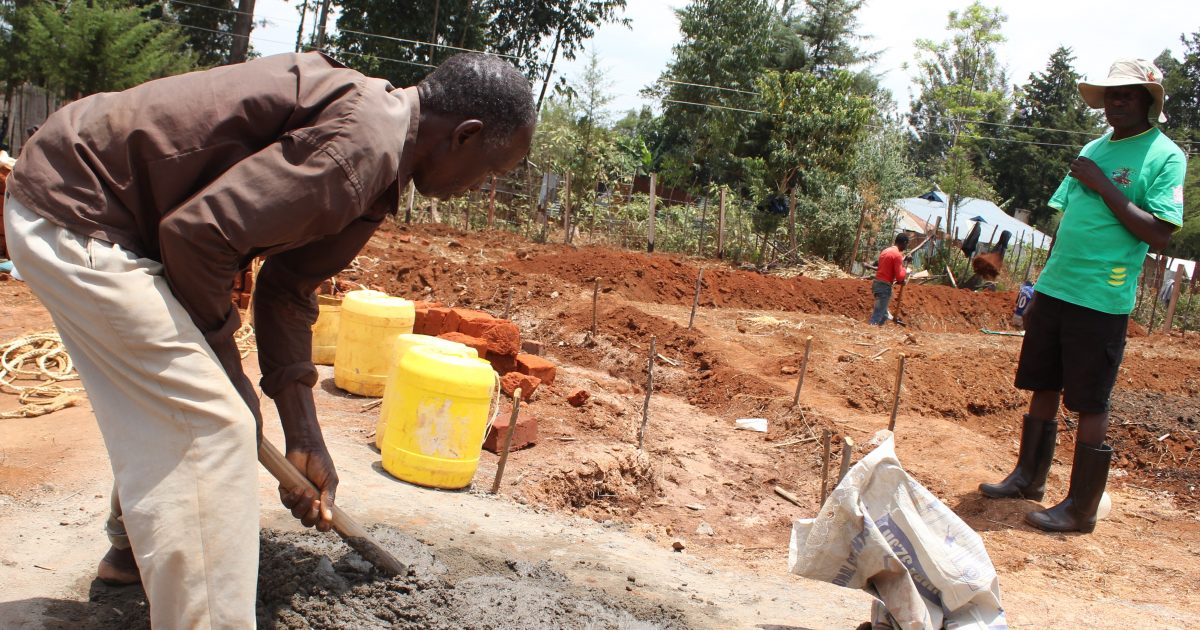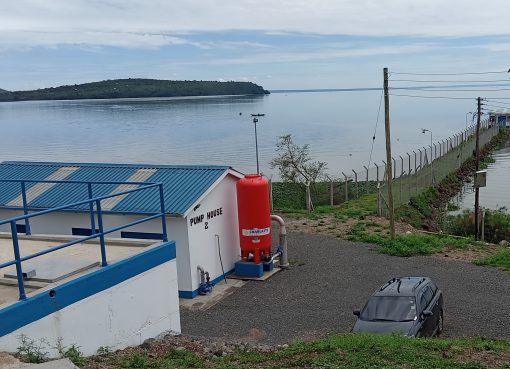Farmers in Western Kenya have been asked to shift from conventional farming to organic farming to reduce the environmental pollution, water and soil degradation.
Agriculture experts argue that conventional farming increases food production, but depletes natural resources and diminishes quality of crops.
Many of these concerns are addressed by sustainable agriculture systems, integrated pest management, bio- control and other alternative farming systems. Environmental and social concerns have escalated the need for alternative agricultural systems in the last decade.
Addressing the press, the Director of Practical Permaculture Institute of Kenya (PPI-K) Josphat Barasa, said that farmers should embrace organic farming saying that the conventional mode of farming has really depleted land leading to low production of farm produce.
Barasa noted that in organic farming, it is cheaper to acquire farm inputs than in conventional farming. He told the press that he quit his teaching job at Kapsabet boy’s secondary school purposely to focus on agriculture, arguing that agriculture mints him more cash than when he was in class.
Barasa who taught English, history and Geography said that he decided to fully take part in farming after he went through a permaculture course at Seven Ravens Permaculture academy, in Canada.
However, he said that after completing his permaculture course in Canada in 2013, he established a permaculture Institute in Busia County specifically to provide training and offering permaculture techniques in Kenya.
Barasa noted that permaculture is a sustainable farming system where little farm inputs with a small piece of land produce different types of crops adding that at his PPI-K institute in Busia he has set up a farm as a demonstration for his students and the community at large.
He said that many farmers have large pieces of land but they lack knowledge on how to utilize the barren land and produce food that can be shared with other starving counties.
“Western, Nyanza and Rift Valley regions are blessed with good weather patterns with huge pieces of land that can produce adequate foodstuffs,” he said.
For this reason, Barasa said that he has partnered with agriculture organizations to involve and run projects in Kenya purposely for farmers to understand the permaculture way of farming.
“I have tried this permaculture system in Busia and Bungoma schools and I have seen it work,” Barasa noted.
Barasa revealed he is currently working with women and youth groups in different parts of the country to teach farmers permaculture ways of farming. “Permaculture is a very simple way of farming and if farmers can embrace it then they won’t lack food on the table,” he said.
He noted that he is currently implementing a permaculture project with 180 women drawn from Visionary Women’s Center (VWC). “Women have a bigger burden in raising their families hence the reason I picked women groups so that they can be used to empower others,” he said.
Barasa said that massive deforestation in Mt. Elgon has caused drying up of rivers and springs in parts of Uganda and Kenya exposing farmers to hardships when it comes to irrigation.
“Mt. Elgon forest is a water source for major rivers in Kenya and Uganda but deforestation has caused drying of rivers and springs,” Barasa noted.
Barasa called on the government through the Kenya Forest Service (KFS), NEMA and other environmental organizations to work closely and plant more trees both in Mt. Elgon and Kakamega forests.
Director Climate change in Bungoma County Ms. Jane Mukonambi said that Mt Elgon forest is a gazetted forest under Kenya Forest Service (KFS), and affirmed that the county government is scheduled to partner with other organizations to plant more trees.
She noted that the Bungoma county government through the department of water, environment, tourism and natural resources is set to plant 31,000 trees in Mt Elgon forest during the rainy season purposely to restore it.
Mukonambi said that the county has included a tree planting plan in the County Integrated Development plan (CIDP). She said that Mt Elgon forest is a water tower for rivers flowing in the Western region and some parts of Uganda adding that diverse deforestation at the forest has negatively impacted rivers and streams in the region.
“The frequent cutting down of trees has caused the drying of rivers and streams in Bungoma and its environs,” she said.
She noted that the climate change issue has greatly affected every member of the society when it comes to food security, adding that it has affected the rain pattern of the year.
“Farmers should be now preparing to plant by the latest 21st March,” she said, adding that climate change has caused a very dry spell with very high temperatures and heat waves. “Locals need to be educated on how to use organic manure,” she said.
However, Mukonambi noted that she is currently running lots of activities in the wards concerning mitigation and adaptation, adding that the county has formed climate change committees in the wards to help curb climate change.
She said that the climate change committee is chaired by Governor Ken Lusaka, adding that as stated in the national act of climate change 2016, the county government is supposed to allocate 2 percent of its development funds towards climate change.
Mukonambi added that Bungoma will also receive Sh50 million funding from the World Bank for every ward for the next three years.
The director urged other organizations to partner with the Bungoma County government and plant trees in the forest.
By Movine Nanjala Barasa and Roseland Lumwamu





